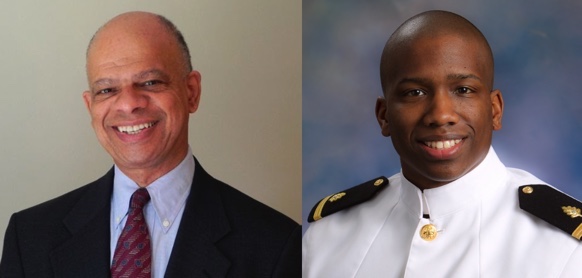ATSU hosts second President’s Cultural Proficiency Speaker Series open forum
Posted: July 24, 2020
A.T. Still University of Health Sciences (ATSU) hosted its second virtual open forum discussion of its President’s Cultural Proficiency Speaker Series, July 23. The forum is a campus community engagement activity designed to provide voice to ATSU’s campus community for open and honest dialogue around race, class, culture, and equity.
The discussion focused on mitigating biases. Clyde Evans, PhD, president, CE Consulting, and former member and chair ATSU Board of Trustees, and David Rhoiney, DO, ’14, ATSU Kirksville College of Osteopathic Medicine alumnus, were featured guest speakers and started the discussion by each providing an opening statement where they reflected on biases within education and medicine, how biases hinder cultural proficiency, and opportunities to overcome biases together.
“Why do we have these biases?” Dr. Rhoiney asked. “It’s sort of like a blinder effect. If you grow up, only seeing a certain type of individual, a certain type of demographic, that’s all you’re going to know. Whenever we are in higher education, or we are in medicine, or we are treating a patient, we need to understand that patient has their own experience.”
After opening statements, Clinton Normore, MBA, vice president for diversity & inclusion, and Stephanie McGrew, MA, coordinator for diversity & inclusion, moderated a Q&A session for students, faculty, and staff.
“Slow down. If we can slow down and disengage the automatic pilot of either our behavior or our decision making, we have a chance to free ourselves from the biases we have,” Dr. Evans said. “If you can keep your focus on fairness, equity, and transparency, that will go a long way towards cultural proficiency.”
Dr. Rhoiney reflected on the approach he takes as a physician to bring compassion to his patients.
“You do not have to go out of your way just to treat somebody like a human being,” Dr. Rhoiney said. “I try and treat everybody like they are my family. What would you want to happen to your family? How would you want them to feel? Would you be upset when they’re upset? When they are hurting, do you feel their pain? Treat them like family, and you’ll get the answer correct every single time.”
Instead of focusing on fault or pointing fingers when biases are uncovered, Dr. Evans suggests working together to facilitate lasting change.
“If we realize and acknowledge there are problems with bias, we all have them, of one kind or another depending on how we’ve grown up, and we have the desire to want to do something about it,” Dr. Evans said. “Then, we could work to help each other, not only uncover what those biases are, but then once we discover them, do something about it.”